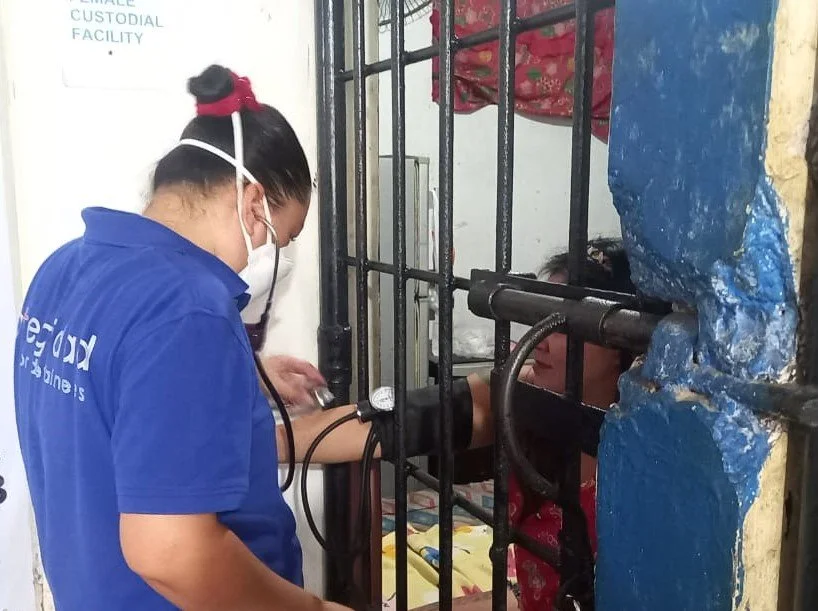Health conditions
All states are unequal...
Common things are commoner
Around the world, places of detention are not simple microcosms of the free world:
Compared with the general population, adults in contact with the criminal justice system have higher rates of mental and physical health problems… Some of the most prevalent problems include substance misuse, personality disorder, depression, anxiety, respiratory disease, diabetes, and other chronic health conditions…
And some are particularly serious
… Being held in prison is associated with increased suicide rates and high levels of mental health problems… Lack of access to healthcare can exacerbate existing problems and affect reintegration to society.
The health of prisoners: summary of NICE guidance
There is no doubt that detainees have worse health problems than their free compatriots.
… but some are more unequal than others
Detainees incarcerated in low and middle income countries (LMICs) tend to have a wider range of conditions presenting in even more advanced states. And being detained in a state with a poor human rights record and even a lack of formal offender healthcare lends further complexity, as does the fact that many of them are at least sub-tropical.
Commonest conditions
In countries with all four high risk factors - LMIC, poor human rights record, lack of formal offender healthcare and at least sub-tropical - detainees fare particularly badly. Here are the leading problems coded within our electronic medical records for patients in such countries’ places of detention:
Dermatology: abscesses, burns from forced ablation of gang tattoos, boils, fungal infections, infected gang tattoos, infections around gang initiation injuries, lice, scabies and wounds
Cardiology: dehydration-induced syncope, heart failure, heat exhaustion and hypertension
Endocrinology: diabetes and diet-induced hypothyroidism
Gastroenterology: diarrhoea, gastric ulcers, hunger, tuberculosis and vomiting
Head & neck: blindness, dental abscesss, dental caries, ear infections and fractured jaws
Infectious diseases: dengue and other haemorrhagic fevers, HIV, hepatitis, malaria and syphilis
Malnutrition: calorie deficiency, iron-deficiency anaemia, protein deficiency, vitamin C deficiency and vitamin D deficiency
Musculoskeletal: acute & unhealed fractures, amputations, arrest injuries, bullet wounds, contractures, handcuff injuries, hernias, interrogation injuries, osteoarthritis, acute & chronic osteomyelitis, rheumatoid arthritis, retained clips and sutures, and rickets
Neurology: cardiovascular accidents and seizures
Obstetrics & gynaecology: menstrual problems, pregnancy, risk of pregnancy and STIs
Oncology: undiagnosed cancer and untreated cancer
Paediatrics: child abuse, safeguarding problems and stunted growth
Palliative care: lack of access to appropriate medicines and treatments
Psychiatry: addiction to crystal meth, alcoholism, anxiety, autism, depression, learning disability, loneliness, personality disorders, post-traumatic stress disorder, psychosis, self-harm and solitary confinement syndrome
Respiratory: asthma, chronic obstructive pulmonary disease, empyema, occupational lung disease, pneumonia and tuberculosis
Urology: infected penile mutilations, renal failure, STIs and UTIs
“The Lord looked down from his sanctuary on high, from heaven he viewed the earth, to hear the groans of the prisoners…”
Psalm 102:18-20



